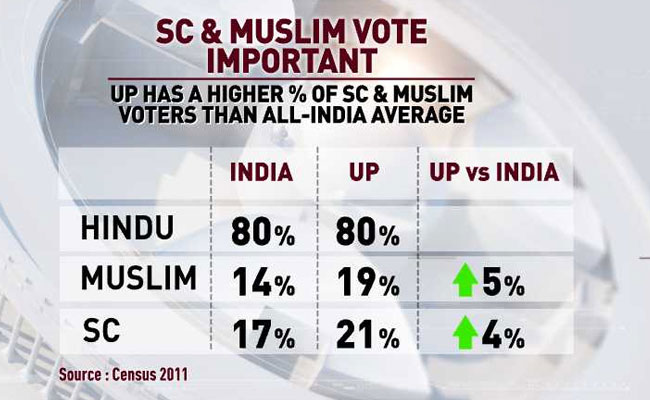In today's episode of NDTV's 'The Countdown', Prannoy Roy, Shekhar Gupta, Dorab R Sopariwala and NDTV's Kamal Khan talk about the caste angle in Uttar Pradesh politics and how the ordinary voter casts her franchise along these lines. The Yadavs and Jatavs support the SP and BSP alliance in the majority. However, the answer to this year's election lies in whether the BJP or the Congress can capitalise on the balance of the votes.
Here are the highlights for the third episode of 'The Countdown':
#TheCountdown | "When we know our weaknesses, we can learn how to defeat our opponents": Samajwadi Party chief @yadavakhilesh
- NDTV (@ndtv) March 20, 2019
Watch part 3 of our 5-episode series on Uttar Pradesh here: https://t.co/Fbzw6n8LeF and NDTV 24x7 pic.twitter.com/EFXASfnNQo
#TheCountdown | "BJP's divide and rule is of a different sort": Samajwadi Party chief @yadavakhilesh to NDTV
- NDTV (@ndtv) March 20, 2019
Watch part 3 of our 5-episode series on Uttar Pradesh here: https://t.co/Fbzw6mR9Q5 and NDTV 24x7 pic.twitter.com/5mmsVYuvSY
Shekhar Gupta: None to the BJP.
Prannoy Roy: Very, very few. Among the non-BJP, its 80-20. There are a few independent candidates. But the divide is 80-20, which can make a big difference.
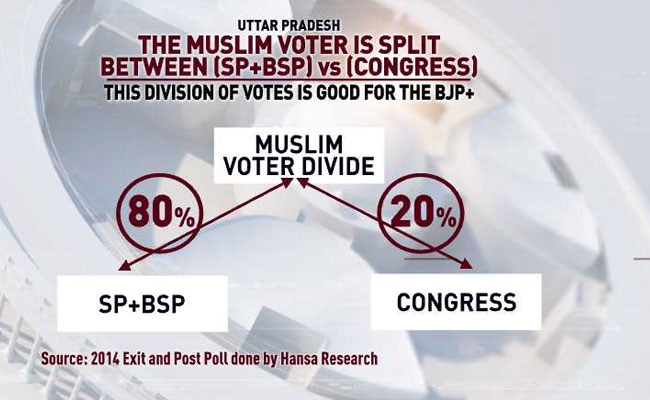
#TheCountdown | Muslim, Scheduled Caste votes are key in Uttar Pradesh
- NDTV (@ndtv) March 20, 2019
Watch part 3 of our 5-episode series on Uttar Pradesh: https://t.co/Fbzw6mR9Q5 and NDTV 24x7 #LokSabhaElections2019 pic.twitter.com/wNoiXZ0nU1
#TheCountdown | Congress no match for BJP or even SP-BSP in Brahmin votes
- NDTV (@ndtv) March 20, 2019
Watch part 3 of our 5-episode series on Uttar Pradesh here: https://t.co/Fbzw6mR9Q5 and NDTV 24x7#ElectionsWithNDTV #LokSabhaElections2019 pic.twitter.com/xUl2cG7qDw
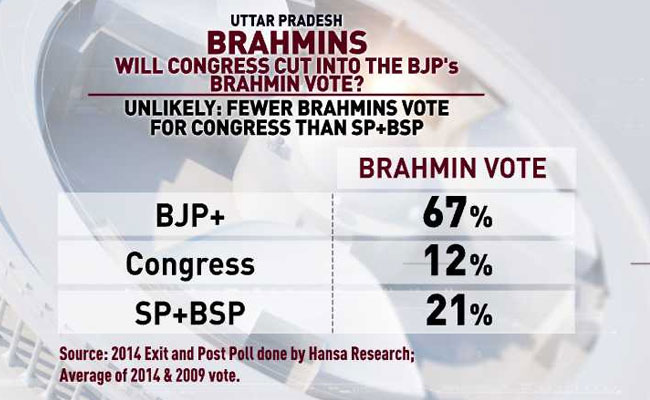
Let's have a look at the Brahmins. A lot of Congress leaders we met said we will take all the Brahmin vote from the BJP. But what's the fact?
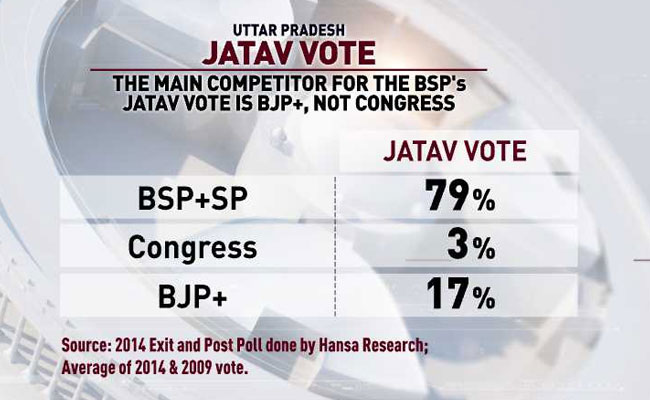
What about the Jatav vote? Is Mayawati worried of Congress eating into her vote?
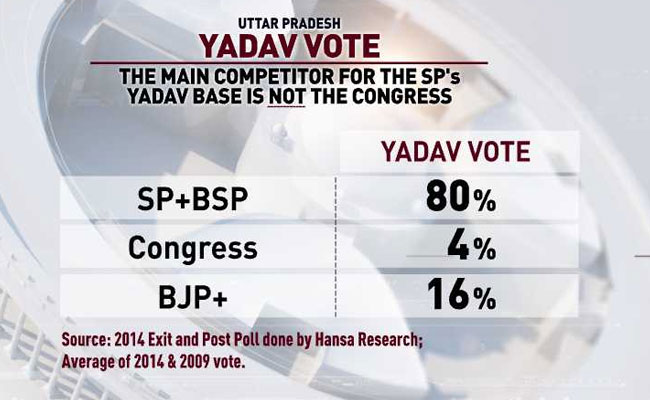
Let's take a look at the caste-wise and whether any alliance would, with Congress would damage the fortunes of the SP or BSP. Is that their big worry?
